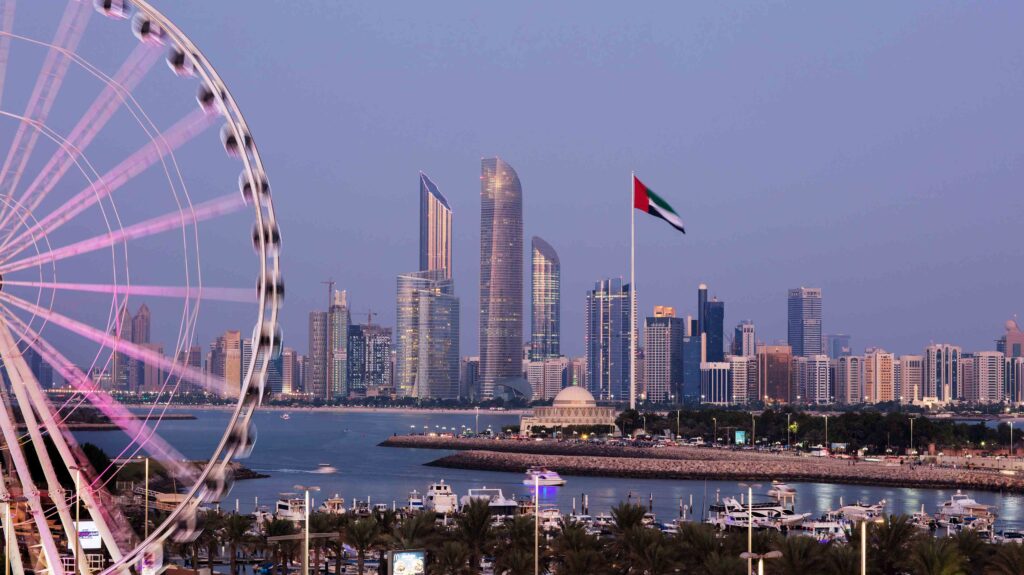In August, the business operations within the non-oil private sectors of Saudi Arabia and the UAE continued to show robust performance, marked by an increase in production and a surge in new orders.
For Saudi Arabia, the largest economy in the Arab world, the reading on the Riyad Bank purchasing managers’ index (PMI) eased slightly to 56.6 in August, down from 57.7 in July. Nevertheless, it remained comfortably above the neutral 50-point threshold that separates expansion from contraction, according to The National News.
Overall, there was a significant improvement in business activity, with surveyed companies reporting higher levels of new orders and expanded market opportunities. These businesses attributed their increased sales to growing customer demand and heightened investment.
“The kingdom’s non-oil activities have managed to expand despite the continuous challenges arising from input prices and the high interest rates,” said Naif Al-Ghaith, chief economist at Riyad Bank.
“The non-oil economy has not displayed much of the tighter monetary policy symptoms. This has been overcome by the continuing reforms and projects … under Vision 2030.”
Vision 2030 Attracts Foreign Companies to Saudi Arabia
The Vision 2030 program, aimed at broadening Saudi Arabia’s economic base and decreasing its reliance on oil, has drawn the interest of foreign companies to the country, according to Mr. Al-Gaith.
He noted that this initiative acts as a driving force behind heightened competition and the enhancement of services.
Surveyed panelists reported that employment in the non-oil sector of the kingdom increased in the previous month compared to July, thanks to sustained growth in new business ventures. Increased hiring and productivity also allowed businesses to lower their existing workloads
In the United Arab Emirates (UAE), the non-oil private sector saw a boost in business activity last month. Among those surveyed, the outlook for the year ahead reached its highest level since March 2020. A significant increase in production and the fastest reduction in delivery times by businesses in over four years marked this improvement.
The seasonally adjusted S&P Global purchasing managers’ Index (PMI) for the UAE, the second-largest economy in the Arab world, dipped slightly to 55 in August, down from 56 in July.
“Strong demand conditions across the non-oil economy gave companies greater confidence about the path for future activity,” said David Owen, senior economist at S&P Global Market Intelligence.
Optimistic Non-Oil Sector Outlook
“The findings suggest that the outlook for the non-oil sector is highly positive, with firms signalling that this was supported by rising new order inflows, greater tourism and increased investment,” said Mr Owen.
Over 25% of those surveyed indicated an increase in production compared to the previous month, with the majority attributing this growth to a rise in new business activities.
The panelists pointed out that vigorous economic expansion contributed to an uptick in new orders, an increase in the number of customers, and higher household expenditures.
Furthermore, there were solid domestic sales figures along with a substantial increase in new export business, marking the fastest growth in this area in over a year.
In the first quarter of this year, the UAE’s economy registered a 3.8% annual growth, driven by its robust non-oil sector, maintaining the momentum from its remarkable 7.9% expansion in 2022, the highest in nearly 11 years.
BRICS Membership Bolsters UAE’s Ambitious Growth Targets
As stated by Abdullah bin Touq, the Minister of Economy, last month, the UAE expects its membership in BRICS to bolster its goal of achieving annual growth of 7% or more and doubling its economy’s size by 2031.
According to the latest PMI survey, businesses noted a significant reduction in supplier lead times in August, as suppliers often responded positively to requests for faster deliveries. This improvement was the most robust recorded since July 2019.
Employment levels experienced modest growth in the latest survey period.
In Egypt, the headline index for the non-oil private sector economy remained unchanged at 49.2 for the second consecutive month, marking its highest level since August 2021.
The survey found that in the Arab world’s third-largest economy, output and new orders declined at modest rates, while employment and inventories moved into expansion territory.
“The findings suggest that the sector has somewhat stabilised in recent months after a prolonged period of contraction,” Mr Owen said.


